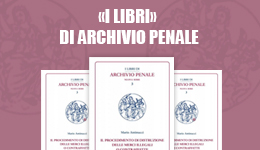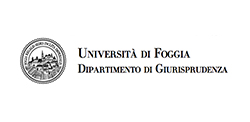L’affrontement des pays du conseil de coopération du golfe contre le crime de terrorisme
Archivio Penale
© dell'autore 2023
Ricevuto: 08 November 2022
| Accettato: 16 January 2023
| Pubblicato: 17 January 2023
L’intero articolo è disponibile
Riassunto
Les représentants des pays du Golfe ont approuvé la stratégie de sécurité globale contre le phénomène du terrorisme travers « la déclaration du Muscat » en octobre 2001, et « la convention de la sécurité pour lutter contre le terrorisme » signé au Koweït en mai 2004. Les Émirats Arabes Unis a été le premier pays, qui a été promulgué une loi spéciale contre le terrorisme, et puis Qatar, Le Royaume Du Bahreïn, Sultan Oman, et en fin L’Arabie Saoudite. En revanche l’état du Koweït, jusqu’à présent, n’a pas été promulgué cette loi. Malgré la convergence de ces pays en ce qui concerne la religion, la culture, la langue, les moeurs et les coutumes, la politique criminelle antiterrorisme reste compatible car il y a des points d’accord et des points désaccord. Pour cela nous nous efforcerons de clarifier cette politique en répondant à un tas de questions, parmi lesquelles : qu’il est le concept du terrorisme ? Est-ce qu’il possède une nature spécifique ou non ? Quel est le domaine ou le champ des crimes indiqués comme crimes terroristes ? C’est pourquoi nous allons évoquer deux points essentiels, le premier concerne l’identification du crime terroriste, sa nature et son domaine. Et puis, le second concerne son particularisme du point de vue objectif et procédure.
The representatives of the Gulf countries approved the global security strategy against the phenomenon of terrorism through the "Muscat declaration" in October 2001, and the "security convention to combat terrorism" signed in Kuwait in May 2004. The United Arab Emirates was the first country, which was enacted a special law against terrorism, and then Qatar, the Kingdom of Bahrain, Sultan Oman, and finally Saudi Arabia. On the other hand, the state of Kuwait, so far, has not enacted this law. Despite the convergence of these countries about religion, culture, language, mores and customs, the criminal anti-terrorism policy remains compatible because there are points of agreement and points of disagreement. For this we will try to clarify this policy by answering a lot of questions, among which: what is the concept of terrorism? Does it have a specific nature or not? What is the area or scope of the crimes indicated as terrorist crimes? Therefore, we are going to discuss two essential points, the first concerns the identification of the terrorist crime, its nature, and its domain. And then, the second concerns its particularism from the objective and procedural point of view.
Percorso di valutazione
Peer reviewed. Certificazione della qualità











